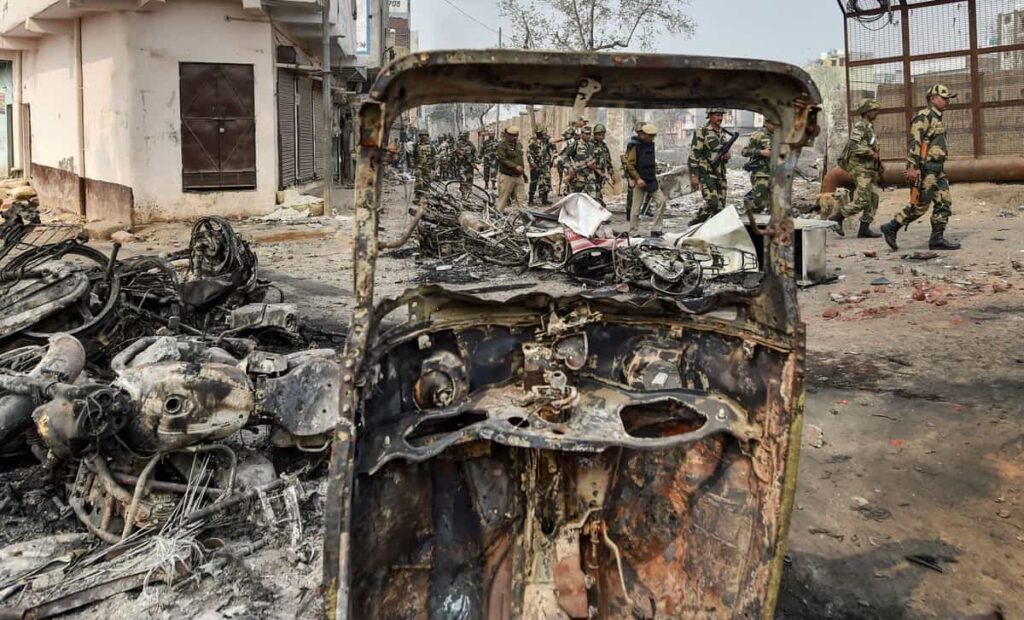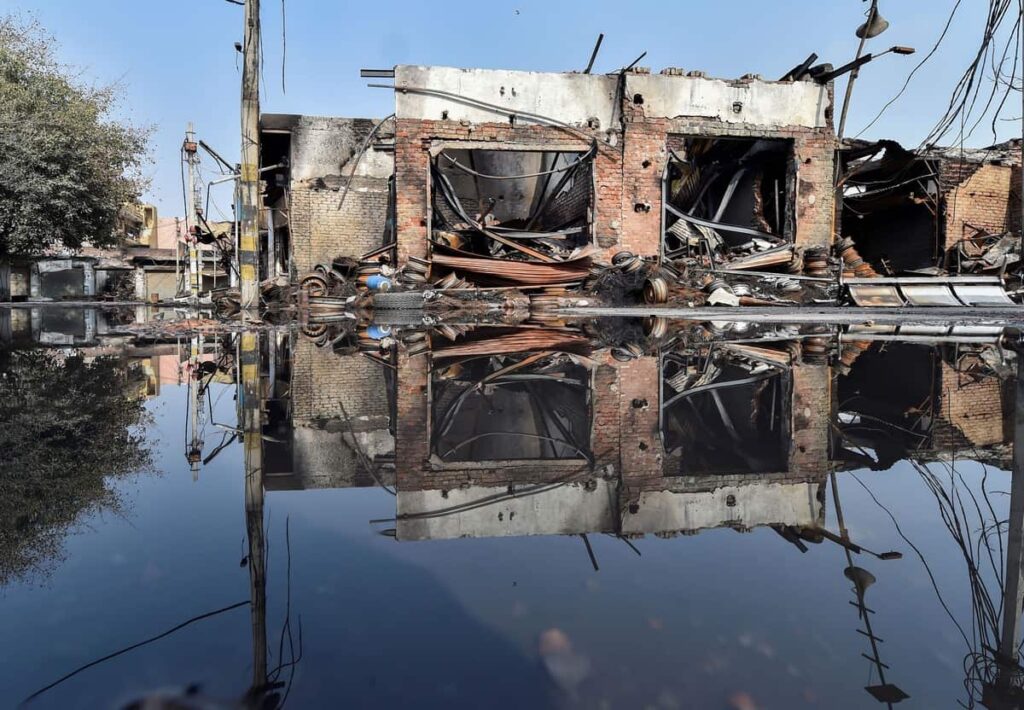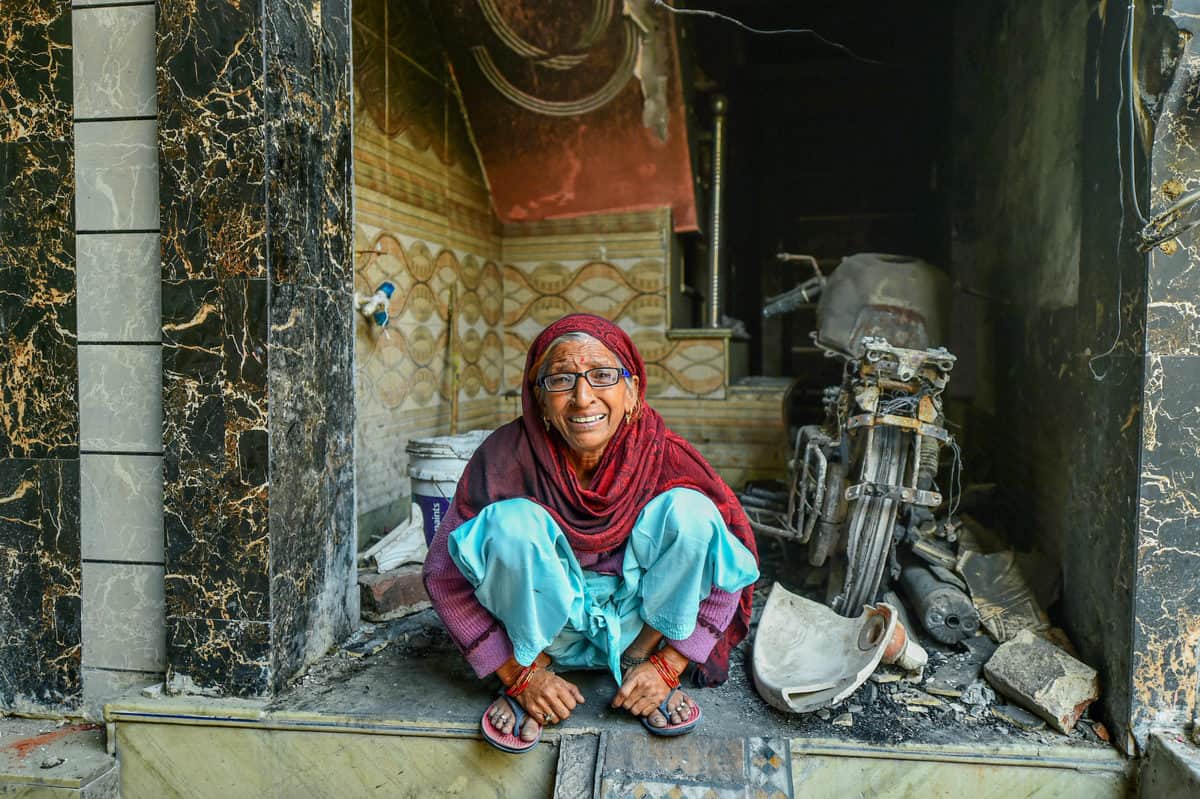New Delhi: Zakir Saifi was offering his afternoon prayers at the Farooqia Masjid in Mustafabad when a Hindu mob chanting “Jai Shri Ram” (Hail Lord Ram) entered the mosque and began attacking the devotees. Saifi was rushed to a local nursing home where doctors told his family he should be taken to a bigger hospital where he could get treatment. In the absence of any vehicle or ambulance, his family took him on a cot to Al-Hind Hospital in Mustafabad where doctors declared him brought dead.
Seven months later, justice still evades families of several victims like Zakir as they have not yet received proper relief and rehabilitation, a report on the Delhi riots said.

In a first of its kind initiative, a 232-page report titled ‘Delhi Riots of 2020: Causes, Fallout and Aftermath’ which comprehensively studied Delhi riots was launched by the Citizen and Lawyers Initiative. ‘A group of concerned citizens, lawyers and students,’ as the non-governmental organization calls itself, prepared a detailed report which calls for setting up an “independent multi-stakeholder accountability team” immediately for impartial assessment of evidence, damage and compensation for the affected.
In the prologue, written by Justice (retired) B N Srikrishna, he stated that there is “a feeling of déjà vu” of the riots that engulfed Mumbai in December 1992-January 1993. The retired justice presided over a commission of inquiry to look into the communal riots that claimed about 900 lives. “It is time that the State machinery and Constitutional functionaries display greater seriousness in the investigation of the causes of such riots and take appropriate steps to prevent their recurrence,” he wrote in the prologue.
The report, edited by a senior advocate Chander Uday Singh, is a combination of facts, pieces of evidence and profiles of the affected as it goes on to describe how police apathy, reported complicity and police inaction continues to haunt the riot victims.
The report stated that prior to the riots there was ‘creation of a facilitative environment of violence’. “The introduction and passage of the CAA (Citizenship (Amendment) Act) and the nation-wide protests that it engendered also gave rise to exclusionary counter-narratives and hate speech that incited and stoked the flames of communal violence. This culminated in the communally charged Delhi election campaign…,” the report states. The report cites several Indian and international media articles.
The report has a mention of BJP leader Kapil Mishra, attacks in two universities of Jamia Milia Islamia and Jawaharlal Nehru University and the controversial chats in Whatsapp groups. It also makes the claim that a delayed police response “until February 26 allowed the violence to continue unabated which resulted in mounting loss of lives”.
The collective report makes seven recommendations including formation of an independent multi-stakeholder accountability team, establishing strong witness protection protocols, publishing official list of deaths, disappearance, and grievous harm among others.
Background of Delhi riots

In the fateful week of 23 February 2020, communal violence engulfed north-east Delhi killing 53 individuals, injuring at least 473 civilians, destroying property worth hundreds of crores, displacing thousands, and laying ruin to lives and livelihoods. Unleashed against the backdrop of widespread protests against the Citizenship Amendment Act, 2019 (CAA), the violence led to the initial arrest of 1330 accused in 751 cases, with early reports suggesting that 700 of those arrested were Muslims, while 630 were Hindus.
Find a copy of the report by Citizen and Lawyer Initiative below.

